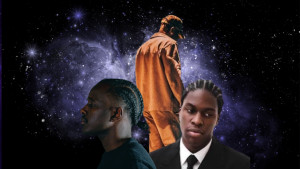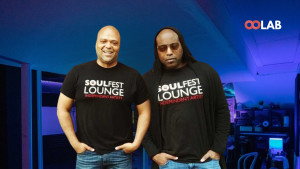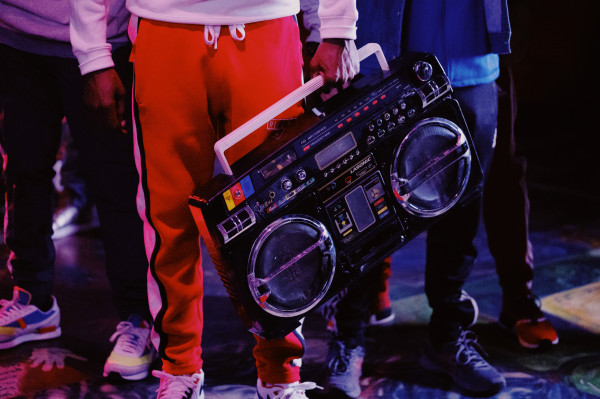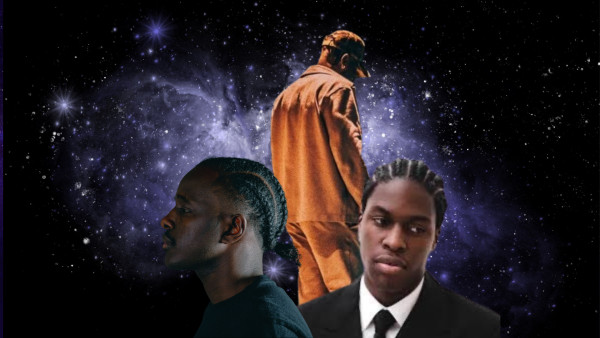Jah’Mila is born from reggae royalty, with her dad being Earl ‘Chinna’ Smith, an original Wailer with none other than Bob himself. The influences of Nina Simone, Luther Vandross and Dennis Brown tapped into her R&B senses, but she was also exposed to Marley’s conviction and greatness growing up. But beforehand, her father opened the doors to another world of musicality and creativity. “I was around when the world was my dad's oyster. He was doing a lot of work for reggae music and his friends. So the people he would hang around would've been those that have had massive contributions to the genre.”
“So you can imagine as a little five-year-old coming from the countryside where my mom’s family is Christian, I see all these Rastamen, and I’m trying to decipher who they are. I know they're important because they carry themselves in a certain way. But, you also get to see the way they live and them playing and making this beautiful music,” says Jah’Mila.
Being immersed in her surroundings, it’s no surprise that moving forward with a music career, specifically, reggae was a no-brainer. But it is much more than just music. Remember, she’s a woman who was reared in roots. Therefore, it’s the practice, lifestyle, spiritual and social context combined. “With certain types of discipline, as a Rastafarian, it changed not only the way I make music but the way I look at life. Some of those values stay with me even today. For example, one of the value systems around my music is that it should be consumable by every demographic of people from all backgrounds, and that's something reggae has always been. More recently, the music from Jamaica has become a little more risqué, which I sometimes like (laughs). And there's a time and place for all of that because I love to party, but the truth is that the value system of the musical legacy I want to leave; I want to create a positive impact on the world,” says Jah’Mila.
{https://youtu.be/EbhlQ64HfCU}
I fully understand the mission at hand. Jah’Mila’s album Roots Girl personifies everything she relayed and lives by. Being a daughter of Jamaica, her perception of music and the education she received could have never occurred anywhere else in the world in the same manner. However, her dreams of singing lead in Jamaica took a backseat to being a background vocalist. She yearned for more and decided that even though the support she required was in Jamaica, the platform and foundation she needed would have to be found elsewhere. “In Jamaica, I did feel supported by a community of people because collectively, we felt unsupported by the system. So you build a family of creative minds and artists that brings us together. We must support each other because the system does not necessarily support our art. So let's see if we can give each other strength. That was the kind of support I received in Jamaica,” says Jah’Mila.
“I'm still connected to artists and musicians today that I used to collaborate with in Jamaica. But, as a woman, I did not feel as supported to be a lead artist. I was always concerned about the image I would have to put forward to succeed. I never felt like I was enough. I used to love people like Etana, who would give a little differently. She shows up as herself authentically. But when I came to Canada, there was no background singing. There was no reggae band for me to sing ooos and ahhhs for. So it forced me to create that path if I wanted to continue to sing reggae music. Within the community, I found a few people; my family now, the musical family that loves reggae music and is passionate about it.” says Jah’Mila.
It’s certainly fitting that Jah’Mila found footing in Nova Scotia. It’s a province so deeply entrenched in Black history. This province is a goldmine for an artist like her, someone who is very much about their craft and advocacy. Merging her love of advocacy and building a foundation for her craft has permitted Jah’Mila to develop and flourish with the support and guidance of our ancestors. “The Maroon community was exiled from Jamaica and brought here as indentured servants in 1796. So I feel like coming here and getting a chance to walk through communities like Preston’s Africville, Gottingen Street, and going up to Whitney Pier brings it full circle. And to be able to have this kind of influence in the community. I feel like I’m avenging the experiences of those people. So it's my responsibility to come here and change that narrative,” says Jah’Mila.
Apart from her album, Jah’Mila’s latest project is a collaboration with the Toronto Symphony Orchestra (TSO) for their Young People’s Concert series. The Reggae Roots show has the reggae artist front and centre, exploring some of Jamiaca’s sounds and stories through song with Barrett Principal Education Conductor and Community Ambassador Daniel Bartholomew-Poyser. In creating the space for this relationship to blossom, Jah’Mila and Bartholomew-Poyser birthed another fantastic project behind the scenes. “People have many misconceptions about music and what we can do together. So to clear that up and to share our culture in Canada, we sat down, and Daniel brainstormed this entire thing. He managed to get the support of the National Arts Centre (NAC), and I came on at first as only the lead singer to sing a selection of songs. Then they even wiggled two of mine in there too. So I felt good about that (laughs). And now that exists online. I became more involved as I built my relationship with the NAC, and together we wrote the pedagogical guide and the artistic direction for the Reggae Roots educational program.”
“It exists online and is free to grade four to grade eight students. All the teachers have to do is download the program and deliver it to their students. People are visiting it, and the teachers are downloading it. I'm still pinching myself. Now, our next stop is TSO."
Jah’Mila is precisely where her ancestors have guided her steps to be. She's performing, educating and spreading the spirit and culture of roots reggae her way. She is a fierce musical purveyor and doesn’t intend to let anything or anyone stand in her way because, as she stated, “even though people can't hold it down, hold it down economically etc., they’ll tie chains on you, but they can’t chain your spirit. Spirit shines through creativity, and I think that is what reggae represents.”
You can catch Jah’Mila’s performance at TSO’s Roots Reggae Young People’s Concert on Sunday, April 16.
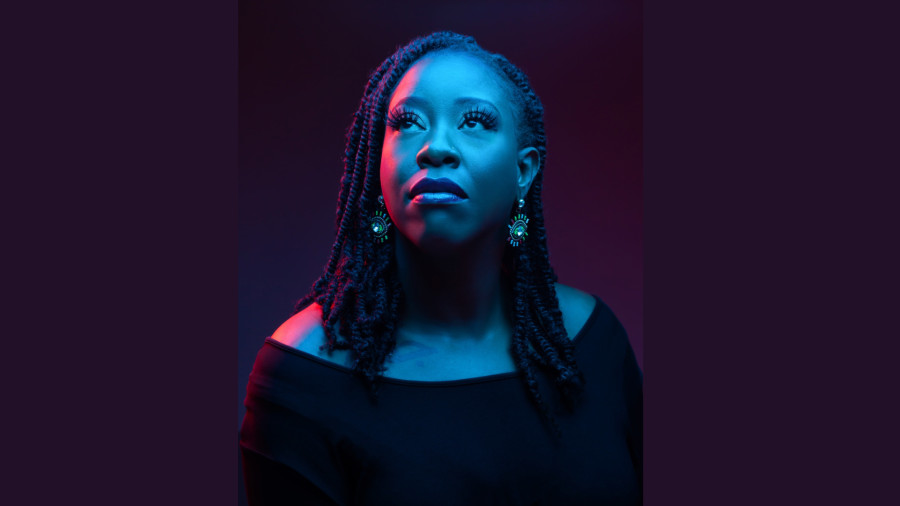
 By
By 




